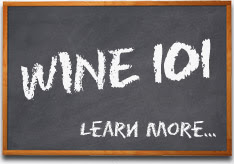Nowadays the decisive factor is how long you plan on keeping the wine and what you want to use it for. If you’re stocking up for your birthday next year, anywhere that isn’t too hot will do. If you bought a valuable red on auction at Sotheby’s and hope to make a return on your investment, you need to invest in proper cellaring too.
Real Time Wine & WineStyle present: 5 Tips for Storing Wine.
For basic home storage, bear the following in mind:
1. Temperature
A constant, cool temperature of 14ºC to 17ºC is ideal. Temperature fluctuations will age your wine prematurely although you needn’t lose sleep over a dip or rise of one degree.
2. Light
Light, be it sunlight or artificial light, ages wine. Even if you’re only going to keep a wine for a month or three, it’s best to keep it in a dark place such as a cupboard. That’s why most red wines, especially if it’s meant to be aged, are bottled in dark green glass. This is no longer the case for white wine, especially those that are made to be enjoyed soon.
3. Vibrations
If a wine bottle is shaken, the wine can break down and it is a particularly bad idea to keep a box of wine on top of the microwave or tumble dryer. If you are going to splurge on a wine fridge, bear in mind that cheaper models usually vibrate, just like your kitchen fridge. A little extra will get you one that will keep your wine stable as well as at the right temperature.
4. Humidity
You will have to keep an eye on the humidity level and it needs to be between 50% and 80%. This is to keep corks from drying out. Dry corks will crack and shrink, letting air into the bottle. If it’s stored somewhere that’s hot and dry, the wine will evaporate too. Granted, a high humidity will encourage mould but that’s nothing good circulation can’t fix. And besides, a mouldy label on an old bottle looks impressive.
5. Flat vs. upright
While inside the bottle, oxygen is your wine’s biggest enemy. Laying bottles on their side will help keep the corks moist.
Which wines improve with age?
- Reds generally age better than whites.
- Good wines will improve and last longer than cheaper ones.
- Very tannic wines mellow and improve with age.
- Champagne ages wonderfully if it is properly stored as the carbon dioxide in the bubbles is a natural preservative.
- Aged wines are fragile and can deteriorate very quickly once open.
- Many dessert wines age well as sugar is a natural preservative.
<> <> <>
The Wine 101 series is a collaboration between Real Time Wine and WineStyle Magazine. Content originally produced by WineStyle. Subscribe to their great newsletter and wine deals here. And whatever wine you're drinking, it's better to share it with your friends using Real Time Wine, the wine app for everyone who enjoys wine, not just those who understand it!


With wines to achieve its fullest flavor when stored, a wine enthusiast must learn these basic things. You don't want to ruin your collection and make it a waste of money and time.
ReplyDelete